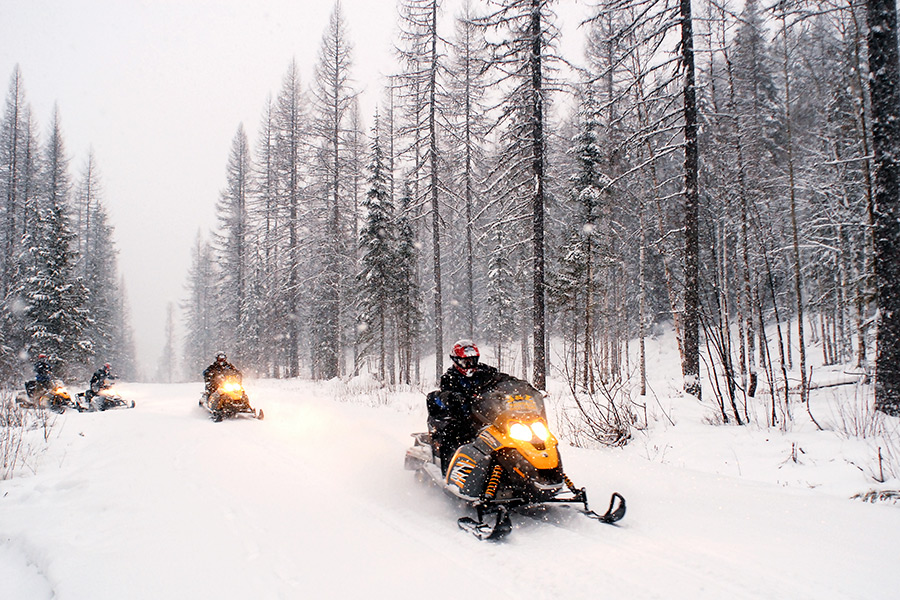A coalition of conservationists has asked to intervene in a lawsuit filed by snowmobilers challenging wilderness provisions in the Kootenai and Idaho Panhandle national forest plans.
The Ten Lakes Snowmobile Club, Citizens for Balanced Use and five other interest groups sued the U.S. Forest Service in November, accusing the agency of improperly excluding snowmobile use from the forest’s recommended wilderness areas and improperly recommending new waterways for the national Wild and Scenic River Act designation.
On Jan. 25, The Wilderness Society, Headwaters Montana, Idaho Conservation League, Montana Wilderness Association, Panhandle Nordic Ski and Snowshoe Club and Winter Wildlands Alliance formally asked to intervene in the case.
At issue are the Forest Service’s 2015 revised forest management plans for the two forests, which recommended certain rugged and unspoiled areas for wilderness designation, according to a statement by Earthjustice, which filed the petition to intervene.
“Snowmobilers already have access to 86 percent of the Kootenai forest and 70 percent of the Idaho Panhandle forest,” said Earthjustice attorney Tim Preso, who is representing the six conservation groups. “We are standing up to defend the peace and solitude of the last pockets of wilderness-quality lands in these otherwise heavily logged and motorized forests.”
The snowmobile interest groups argue the recommended wilderness designations should be overturned, and opened to motorized use by snowmobiles and four-wheelers.
The conservation coalition includes Winter Wildlands Alliance, Panhandle Nordic Club, Idaho Conservation League and Montana Wilderness Association.
The snowmobiling groups include Ten Lakes Snowmobile Club, Montanans for Multiple Use, Citizens for Balanced Use, the Glen Lake Irrigation District, Backcountry Sled Patriots, the Idaho State Snowmobile Association and the Blueribbon Coalition.
Both the Kootenai and Idaho-Panhandle forests issued new forest plans last January, replacing versions dating back to 1987. They also issued draft travel management plans, which closed access to some recommended wilderness areas where snowmobiles had been allowed to ride in the past.
According to Ten Lakes attorney Paul Turcke, the Forest Service’s process for determining wilderness areas in its new plans was flawed.
“The criteria and procedures used for determining wilderness suitability in the Forest Plans Revision process were vague, subjective, internally contradictory and not rationally connected to the factors established by Congress and/or the Forest Service Handbook in determining the suitability of any area for possible designation as Wilderness,” Turcke wrote. “Even where some of the Wilderness suitability evaluation criteria were correctly identified, those criteria were applied in the Revised Forest Plans process in an arbitrary manner.”
The suit specifically named the Roderick and Scotchman Peaks recommended wilderness areas as examples of what Turcke calls a flawed process.
